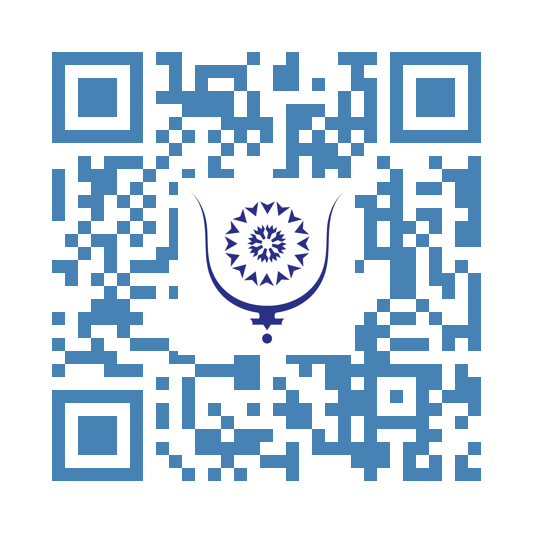Morocco, History, and Geography: The Foundations of Political Reality and Territorial Integrity... 12448
Politics cannot be separated from history or geography. It consists of a set of actions and decisions aimed at organizing a society internally, as well as in its relations with the rest of the world. It is always situated within a context shaped by the two fundamental dimensions of history and geography, which are by no means mere backdrops but rather provide the framework within which political projects, conflicts, and developments unfold. Politics may be influenced by an ideology—born of a philosophy—or simply shaped by a given context, but such influence rarely lasts.
History plays a fundamental role in understanding political phenomena. A country’s institutions, laws, and values are rooted in its collective memory, an inheritance made up of major events, breaks, or continuities with the past. Borders, for example, are often drawn following wars or treaties, the outcome of ancient or recent conflicts. They remain visible marks of past rivalries, defeats, victories, and compromises. Relations—whether of solidarity or rivalry—between nations, regions, or communities are explained in light of shared or divergent histories.
The present Kingdom of Morocco cannot be understood without reference to its millennial origins, to the centuries-old Sharifian Empire, nor to the successive dynasties that shaped its relationship to religion, allegiance, and the centralization of power throughout different eras.
Similarly, geography significantly influences the choices and constraints of public policies. The distribution of natural resources conditions economic development, territorial organization, and power relations. Relief, climate, and access to maritime routes determine possibilities for urbanization, agriculture, communication, and defense. Border situations impose specific diplomatic and security policies, while landlocked or insular areas require tailored strategies. Some authors even describe Morocco as an “island country” due to its geographical configuration.
It is therefore inconceivable to conceive of effective or legitimate politics without taking history and geography into account. Every choice, reform, or political ambition must be based on a deep understanding of the territory and collective memory; ignoring one or the other exposes one to illusion, misunderstanding, or even failure.
Regarding the Sahara, referred to as the “Western Sahara,” the geography of this region is undeniably contiguous to Morocco, physically, demographically, and historically: the Saharan populations have largely contributed to the country’s evolution. Its history was written through the successive allegiances of its tribes to the sultans of Morocco, and the Sharifian kingdom thus constitutes a nation-state established long before the contemporary era.
Weakened by having missed the crucial turn of the industrial revolution, the Sharifian Empire was dissected from south to north, but also from the east. The so-called Western Sahara was annexed by Spain, which exercised colonial control there from 1884 to 1975. This situation facilitated France’s domination over territories grouped into French West Africa, part of which later became Mauritania. France also appropriated the eastern part of the Sharifian Empire, annexed de facto to its departments conquered from the Ottoman Empire and called French Algeria. The remainder was placed under French protectorate, while northern Morocco came under Spanish rule.
Independence, achieved in 1956, and the gradual decolonization of Sidi Ifni and Tarfaya concerned other regions only later.
On November 28, 1960, France authorized the proclamation of Mauritania’s independence—a region then claimed by Morocco, as were territories under Spanish control that Morocco considered its own. At that time, there was a Moroccan ministry called the “Ministry of Mauritanian and Saharan Affairs,” headed by Mohammed Fal Ould Oumeir, a representative of those territories.
From 1963 onwards, the kingdom raised the issue of the Spanish Sahara before the Decolonization Commission. The situation became complicated when newly created Mauritania also claimed the territory, notably to pressure Morocco, which did not recognize Mauritanian independence until 1969—nine years after its proclamation. Morocco continued to claim the Spanish Sahara peacefully, preventing the Liberation Army from pursuing military actions in the region.
In 1973, the creation of the Polisario Front (Popular Front for the Liberation of Saguia el-Hamra and Rio de Oro) marked a new stage. This movement initially aimed to unite the Saharan territory with the “motherland.” But in a context of regional rivalries and ideological tensions, the Saharan question was instrumentalized by various actors.
Muammar Gaddafi’s Libya played a decisive role in the rise of the separatist Polisario, supporting and arming the movement in a "revolutionary" and pan-Arabist logic, while seeking to destabilize the Moroccan monarchy. Later, Gaddafi himself admitted having made a “strategic mistake” in backing this group, which remains a destabilizing factor in the region today.
In 1975, a peaceful turning point occurred: bolstered by the International Court of Justice’s opinion recognizing ties of allegiance between Saharan tribes and Moroccan sultans, the late King Hassan II launched the Green March to general surprise. This mobilization pushed Spain to withdraw from Laâyoune in favor of Morocco, which immediately reclaimed the territory. Mauritania, although having occupied adjacent zones, ultimately withdrew, leaving Morocco alone against the Polisario Front, actively supported by Algeria, which hosted, armed, financed, and elevated the movement into a “republic.”
Houari Boumédiène’s Algeria exploited the situation to weaken its Moroccan neighbor, even calling the Saharan issue a “thorn in Morocco’s side,” a way of exacting revenge for the crushing defeat in 1963.
This dispute has often overshadowed the deep history of ties between Morocco and these territories under Sharifian authority well before the colonial era. For Morocco, territorial integrity rests firmly on the constants of history and geography—major arguments. The rest is merely a temporary construction without foundation, destined to fade into oblivion in the near future.
Moroccans know this very well… Perhaps not everyone else…



